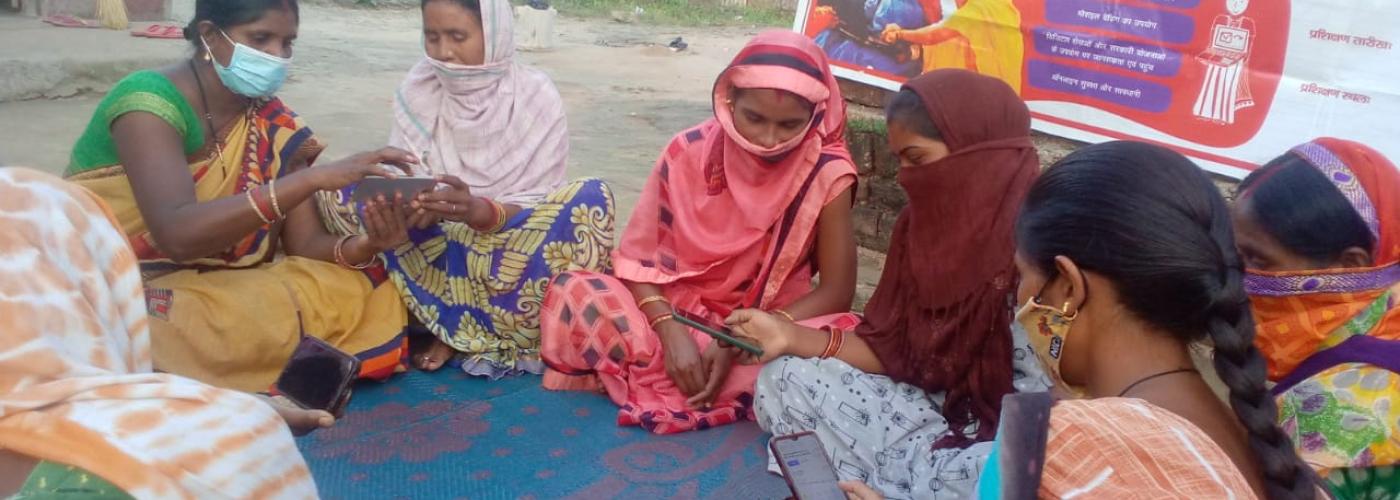How A Hyper-Localized Initiative Empowers India’s Most Disconnected Communities
Image

This blog is co-authored by Komal Bazaz Smith, Program Director of USAID Digital Connectivity & Cybersecurity Partnership Programs and Anthony Brown, Co-Founder, Acute Incite
How do you start to address the intractable challenge of connecting India’s most disconnected communities? If you ask Osama Manzar, Founder and Director of India’s Digital Empowerment Foundation (DEF), the answer can be found within those very communities where would-be women entrepreneurs are making the difference. For more than 20 years, DEF has worked to alleviate India’s rural, semi-rural, remote, and tribal communities from information poverty and empower them with digital tools that improve their lives. The magnitude of this challenge – further complicated by India’s social, economic, and geographic diversity – can only be addressed through hyper-local initiatives that lean more towards entrepreneurship than traditional development. As Manzar explains,
“India is a country of multiple paradoxes. Not only do we boast some of the most advanced technology innovators, but we also struggle with too many communities that have no connectivity. Meanwhile, our patriarchal society hides too many women in plain sight who have no digital access or literacy. Digital Empowerment Foundation (DEF) is extremely different from other digital development initiatives because we put disconnected communities first. We see the potential of their linguistic diversity, their economic diversity, their geographic diversity, and even their inaccessibility. This is the prime reason we exist. Our design of digital access is not a technology push but rather an entrepreneurial and context-aware pull.”
DEF understands the importance of creating and nurturing trusted channels in efforts to increase digital access and literacy in some of the most remote and digitally challenged communities across India. The organization emphasizes both the digital and personal aspects of their engagements, acknowledging that DEF’s success requires both. Interestingly, DEF ascribes many of their digital successes to the connections made through their people. For example, DEF’s Digital Sarthak model identifies local change agents — women who are known, connected, and respected in their communities, who exhibit entrepreneurial traits, and who want to make a positive impact in the lives around them. With basic training from DEF, these women have demonstrated their ability to make rapid and lasting connections with other women, opening the door to digital tools that make simple but significant impact. The human connections at the local level start to build trust and elicit opportunities for digital engagement. As DEF Deputy Director Arpana Singhal explains,
“By working through women who are known and trusted in their communities, we build rapport as we are setting up the centers. We are nurturing that Digital Sarthak, that knowledge repository. That person is part and parcel of that community, and this is how we ensure sustainability.”
Regarding the digital engagement component, Mr. Manzar explains that DEF has taken deliberate steps to deliver technology solutions that are simple and effective.
“Simplicity governs all our engagements with local communities. We actively avoid pushing solutions that create training or language or technology barriers. For instance, if a local weaver can operate a camera and a simple touch screen application, she can create an online store or catalog. She does not need to learn English or typing skills. Again, we meet them where they are and find opportunities to engage that make an instant impact on their lives.”
What is it that makes DEF able to make inroads and impact for communities that have eluded other development initiatives? The most obvious answer is that the vision and talent of DEF’s leaders and activists play a critical role. However, their strategic advantage lies in both their vision and their ability to identify and harness the entrepreneurial spirit of their Digital Sarthaks and the communities where they live. Entrepreneurs do not require education, traditional business models, or bountiful resources. Rather, entrepreneurs are characterized by an ability to overcome odds, to find success where others cannot, and to build creative solutions to intransigent problems. DEF has embraced the power of entrepreneurship, as exhibited by the name for their SoochnaPreneurs or Information Entrepreneurs — the predecessors to the Digital Sarthaks.
In this context, entrepreneurship draws from many of the same concepts of hyper-locality that are also central to DEF’s Digital Sarthak model. DEF trains and empowers local women in some of the most challenged communities across India. These women build networks of digitally connected women who previously had no digital access or literacy. These women then overcome connectivity and digital literacy obstacles to develop local approaches in a way that makes the most sense for their situation. DEF does not dictate specific processes, content, or approaches. Instead, they allow these information entrepreneurs to develop their own creative solutions. By focusing on the ends rather than the means, DEF brings and sustains lasting change in previously disconnected and remote communities.
DEF has also cultivated critical partnerships to better enable their entrepreneurship programming with partners including the South Asia Regional Digital Initiative (SARDI), a unique development approach funded by the U.S. Department of State’s Digital Connectivity and Cybersecurity Partnership (DCCP). Managed by the U.S. Agency for International Development (USAID) and implemented by DAI’s Digital Frontiers, SARDI is focused on identifying local partners who take hyper-local and entrepreneurial approaches to achieve sustainable outcomes for digital access, literacy, and inclusion. In parallel to DEF’s successful approach, SARDI strives to empower implementing partners to respond to incredibly dynamic situations. While DEF and their SoochnaPreneurs were successful before partnering with SARDI, the partnership with the USAID and DCCP solidified DEF’s Digital Sarthak model to become a worthy example of effective, sustainable development.
SARDI is a DCCP-funded effort led by USAID and implemented by DAI’s Digital Frontiers. SARDI aims to improve digital connectivity in the South Asia region, strengthen the private sector and civil society’s digital capacity, and improve their ability to engage on ICT policy issues. DCCP is a whole-of-government initiative led by the Department of State and co-chaired by USAID to promote an open, interoperable, reliable, and secure digital economy.

